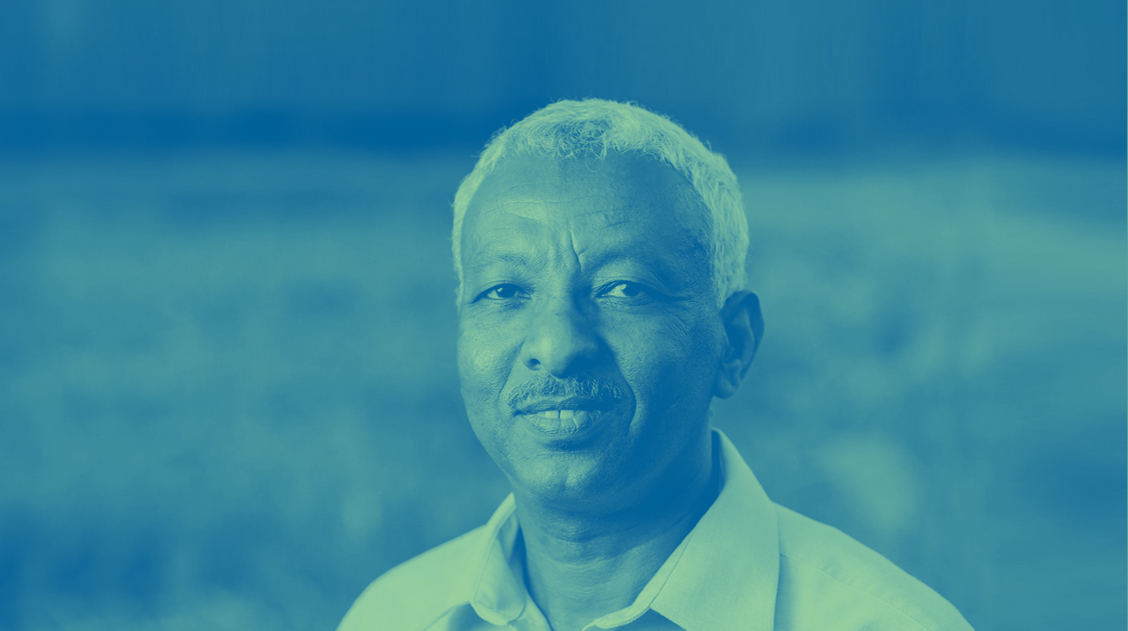
Interview with Expert in Crop Improvement Dr Abdelbagi M. Ismail
Encouraging research on sustainability and celebrating advances in this area is only becoming increasingly important. As the global population increases, it’s crucial to better understand how humans negatively impact the environment and how we can minimise our impact for future generations.
MDPI supports sustainability researchers in a multitude of ways, including providing a wide range of journals to publish their research, presenting prestigious awards, and hosting the World Sustainability Forum.
The World Sustainability Forum
The World Sustainability Forum is an event that MDPI has organised and hosted for over 10 years. This event supports the dissemination and advancement of sustainability research in a wide variety of ways:
- Providing a platform for sustainability leaders to present novel research.
- Inspiring collaborations and partnerships necessary for the advancement of sustainability research, providing actionable solutions to current issues.
- Celebrating researchers’ important work by presenting two major awards at the event: the World Sustainability Award and the Emerging Sustainability Leader Award.
Please see our recent article to learn more about MDPI’s Sustainability Awards.
The award winners have recently been announced and will be presented with their awards at the 11th World Sustainability Forum in Barcelona, Spain, 2–3 October 2025.
In this series, we interviewed the two winners of the World Sustainability Award: Professor Dr. Stuart Pimm and Dr. Abdelbagi M. Ismail.
This article will focus on Dr. Abdelbagi M. Ismail and his fascinating career, including what inspired his important work in crop improvement and how he sees the field developing in the future.
Dr. Abdelbagi M. Ismail
Dr Ismail. is a Principal Scientist with over 30 years of experience working in the field of crop improvement. His research focuses on enhancing resilience to climate change and adverse environmental conditions in stress-prone environments affected by floods, drought and poor soils. This includes expanding the understanding of abiotic stress tolerance mechanisms in crops and developing stress-tolerant varieties.
His work is impactful, especially in Asia and Africa, where, together with several IRRI colleagues and partners, has led major regional programmes and projects advancing stress-tolerant varieties and system-based farming approaches. One example of this is the work on the STRASA (Stress Tolerant Rice for Africa and South Asia) project.
“STRASA has brought forth a new era of scientific excellence in rice science through its shared platforms for targeted innovations in trait and gene discovery and deployment through resilient, high-yielding, and marketable varieties to needy farmers in areas frequently devastated by abiotic factors.” – Dr. Abdelbagi Ismail
What influenced you to start your career in crop improvement?
I came from a farming family in Sudan, where farmers practise subsistence farming along the Nile River. A mixed farming system that includes major food crops like wheat (major staple), sorghum, beans and a variety of vegetables and fruit trees. This brought me the love of agriculture from the early days of my life, making it easy for me to make this choice. At that time, there was a large emphasis on agriculture, with the enormous resources of water, land and weather conditions, where the country was being referred to as the “World Food Basket”.
Witnessing the impact of abiotic stresses on food production in Africa and globally gave me no choice but to dig more into this area to see how research can help improve and sustain food production from less favourable lands, especially with the worsening conditions of climate change. I found the diversity between and within crop species and wild relatives to survive these harsh conditions fascinating, attracting me to focus on how crops like cowpea and rice could withstand such variable conditions, from extreme droughts to floods and from cold to hot weather conditions.
The area of abiotic stress tolerance has become even more critical with worsening climates, which intensify and exacerbate these conditions. My interest then focused on how to help smallholder farmers sustain their food production and minimise their risks of food shortages when they experience severe conditions, such as drought, severe floods, and land loss due to salt accumulation. Severe incidences of these stresses usually cause farmers to lose their crops and earnings, forcing them to liquidate their belongings, including their lands, to survive during bad years, taking them deeper into poverty.
How has the field evolved since you began your career?
During the early days of my career, breeders and physiologists relied on visually selecting individual plants from segregating populations for desired traits while gradually developing phenotypic techniques that helped in making more accurate and fast selections from breeding nurseries in the field. This is a slow and costly process, requiring several generations of selection under field conditions for yield and other adaptive and quality traits. Despite its limitations, this process led to considerable progress in transferring genes from landraces to the currently cultivated varieties of various food crops.
The evolution of molecular mapping and identification of several types of markers associated with traits of interest made selection much more precise, faster and less expensive, where lines carrying tolerance genes can be tracked and fixed during early generations. Further on, it became possible to assess large genomic regions to predict breeding values, leading to the introduction of genomic selection for complex traits.
More recently, the introduction of advanced molecular tools for genome editing, such as CRISPR/Cas9, allowed precise manipulations in the genomes of various crops to introduce traits of interest for nutrition, disease resistance and tolerance of various abiotic stresses.
Modern breeding programmes, including that for rice, are now integrating these advanced molecular and modern phenotyping approaches to allow faster progress to cope with the current needs for more food, healthier diets, and better adaptation to the worsening weather conditions due to climate change. Future integration of data science and modelling using Artificial Intelligence (AI) and machine learning models at scale should lead to faster progress.
You have led countless programmes and projects. If you had to choose, which project has been the most rewarding?
I am very proud of a project called STRASA (Stress Tolerant Rice for Africa and South Asia).
This initiative was funded by the Bill and Melinda Gates Foundation from 2007 to 2019 and was led by IRRI and the AfricaRice Centre. The project goal was to develop, commercialize and disseminate climate-resilient rice varieties, specifically those that are tolerant of drought, floods, excess salts and other soil problems, and cold weather.
The project established strong partnerships between three countries in South Asia (India, Bangladesh, and Nepal) and 18 countries in sub-Saharan Africa. Its impacts can be seen in several countries in Southeast Asia, including Vietnam, Cambodia, Indonesia and the Philippines. It was estimated that the project has reached about 18 million farmers in fragile rice areas in these countries. Through this partnership, the project facilitated the introduction of stress tolerance in about 150 varieties in Asia and Africa and distributed about half a million tonnes of quality seeds of these varieties to farmers.
What was the significance of this project?
The significance of this project stems from its focus on areas affected by abiotic stresses. These areas are less developed, dominated by impoverished communities that did not benefit from early progress that focused on favourable irrigated and rainfed areas, like the ‘Green Revolution’. Discovery of new genes from the collection of old rice landraces and traditional varieties being used in these areas and their transfer to modern varieties helped transform the productivity of these areas that are usually considered less to non-productive.
The progress also encouraged governments to invest additional resources that facilitated out-scaling of these new varieties, besides attracting more investments by countries, donors and development agencies.
Clearly, this project helped in improving food security and the livelihood of farmers in stress-prone areas, which are more vulnerable to climate change adversities. The project also facilitated adjustments of several policies and standards to speed progress from breeding stress-tolerant varieties to developing functional seed systems, engaging the private sector, farmers’ cooperatives and development agencies.
Together, this led to faster exchange and adoption of both stress-tolerant rice varieties and management technologies. One example of these policy changes is the “Seed Without Border” agreement that was ratified by ten countries in South and Southeast Asia and has now been extended to Africa. This agreement was recognized by the American Association for the Advancement of Science (AAAS) in 2023, winning the AAAS David and Betty Hamburg Award for Science Diplomacy.
Your work has been extremely impactful in Asia and Africa. What would you say are the challenges of crop improvement in these areas?
Most of our national partners do not have proper infrastructure and capacity for demonstrating and outscaling new varieties and related interventions with farmers, to capitalize on research benefits to increase and sustain their productivity.
This is particularly apparent in Africa, where there is very little investment from most governments in agricultural development, which is critically important for research and for the production of early-generation seeds of new varieties and for taking new innovations to scale.
The role of the private sector is limited in most countries, while their engagement is crucial for the production and marketing of high-quality commercial seeds, the provision of agricultural input like fertilizers and machinery, proper postharvest handling (drying, milling, storage) to preserve quality and reduce losses, and for linkages to consumers through marketing.
The lack of proper private sector engagement and roles led to fragmented value chains, with a large number of intermediaries, bringing little returns to farmers. This is obviously leading to less interest, especially from smallholder farmers, in adopting new varieties and knowledge, leading them to stick to their traditional varieties and management systems as a way of risk aversion.
What changes need to be made to facilitate improvement in these areas?
Agricultural policies and standards are mostly old and need to be updated for the timely use of new research outcomes and products. In some countries, the time from releasing new varieties to reaching farmers at scale could take over 10 years, by which time these varieties are no longer appropriate in the fast-changing climate and worsening abiotic and biotic stresses. Some countries made significant improvements in their agriculture-related policies and standards in Asia, and this led to considerable improvement in their rice productivity, shifting from net importers to being large exporters.
The vulnerability of the food systems to climate changes, price shocks and uncertainty in global markets availability and prices, especially with conflicts, disasters, and pandemics, is forcing most countries in Africa to focus more on national and regional food sovereignty rather than food security by depending on global markets.
How important is crop improvement research in today’s climate to help meet the growing demand for food security?
This is obviously becoming more important than ever with time, with the current challenges of diminishing resources of land and water, deteriorating weather and soil conditions and increasing demand for more food, especially in the Global South. With the fast developments in research discoveries, data science and smart and fast means of communicating knowledge using, e.g., smartphones, a lot needs to be accomplished towards meeting these growing demands from diminishing agricultural resources and intruding urbanization.
Solutions to prevent worsening climate conditions and enhance the capacity to adapt to them through resilient crop varieties and production systems need more focused research and resources.
Creative means need to be in place to translate scientific discoveries into solutions, coupled with fast delivery systems to reach intended users for impact at scale. There is a need for aggregating smallholder farming systems to effectively transform the current traditional small-scale farming into more efficient, large, mechanised and semi-automated systems. Smallholder farmers are ageing faster, and young men and women are migrating to urban areas.
Agricultural systems need to be more attractive to young generations through the use of modern production and marketing systems for them to see it as their preferred choice for entrepreneurship.
How do you see crop improvement research evolving in the future?
This is an exciting time for crop improvement and promises a bright future to handle the current and emerging challenges of global food security. However, successful implementation of these approaches for developing and disseminating useful products requires concerted efforts, including framing and adjusting empowering policy frameworks that allow fast-tracking regulations and guidelines, free sharing of knowledge and material and provision of financial resources, especially for nations in the south.
More efforts need to be devoted towards preventing the adverse effects of climate change. We need to minimize loss of natural resources through wise use.
Combining these efforts with further improvement in adaptation of food crops and cropping systems to less favourable conditions will help sustain food production and conserve natural resources, biodiversity and the environment. This also requires commitment from both the public and private sectors to support discovery research to continue developing and adopting innovative solutions.
Importance of celebrating sustainability research
Dr. Ismail’s research and career have greatly influenced the field of crop improvement. In addition, his work has led to sustainable solutions for crop and food production whilst protecting the environment. In the face of growing environmental concerns it’s important to recognise his impactful work and projects he has led. Dr. Ismail continues to inspire others to join the fight against climate change, whilst providing much-needed sustainable food sources.
Awards such as the World Sustainability Award help to increase the visibility of essential research and contribute to its funding.
If you’re interested in learning more about the 11th World Sustainability Forum, please see the Sciforum website here for more information.
Or, if you would like to keep up with content from the event, please see our social media pages: Facebook, LinkedIn, Instagram and X for photos and interviews from the conference.











Immensely important thoughts and initiatives to develop a roadmap for sustaibable agriculture and global food security. Thd vision has enormous potential to make agriculture attractive to the young and upcoming generations in the era of continuously changing climatic conditions.
Thank you for taking the time to read the article and leaving kind words; it is much appreciated.
All the best.